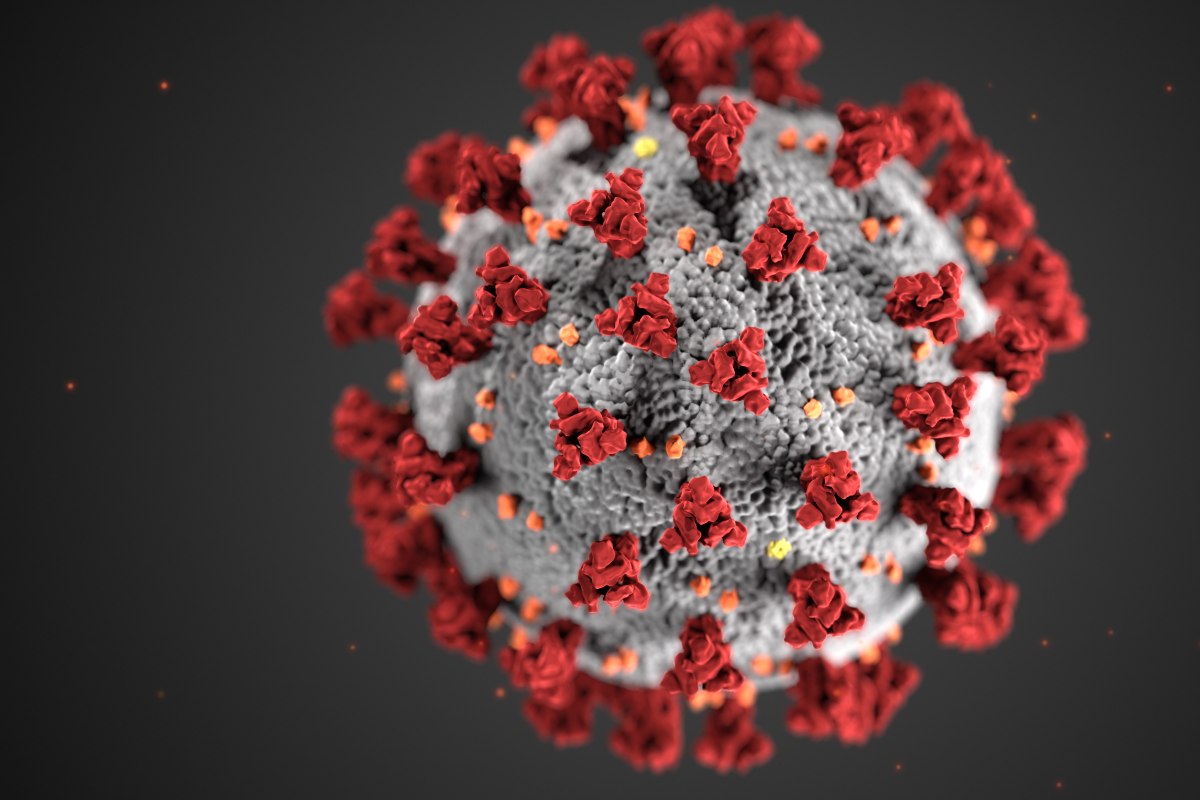
This illustration, created at the Centers for Disease Control and Prevention (CDC), reveals ultrastructural morphology exhibited by coronaviruses.
The COVID-19 pandemic has affected almost every aspect of our lives, from how we manage our physical health to the search for a vaccine and treatments to mental health support. Four new research projects, funded by the Canadian Institute for Advanced Research (CIFAR), are underway to build a multi-pronged, precision-health approach to address these issues.
Facilitating drug discovery
Matthew Taylor (computing science) is working with industry partners to accelerate the discovery of safe and effective treatments for COVID-19.
A fellow of the Alberta Machine Intelligence Institute (Amii), Taylor and his team are looking for small molecules that have already been tested and approved as pharmaceuticals that may be effective in managing COVID-19. Using approved molecules that are proven safe will accelerate the path to implementation.
Looking after our most vulnerable
Guarding At-Risk Demographics with AI (GuARD-AI) is a project designed to use AI to identify vulnerable groups, predict the course of COVID-19, and use this insight to inform future virtual health-care delivery mdoels. Importantly, GuARD-AI is designed to support Alberta and Canada now during the pandemic, as well as to prepare us for future public health challenges.
GuARD-AI’s interdisciplinary focus involves collaborators from across campus: Daniel Baumgart (medicine), Randy Goebel (computing science), Geoffrey Rockwell (philosophy), and Martha White (computing science). Goebel and White are both Amii fellows, and White is the CIFAR AI chair.
Managing the most severe symptoms
Severe illness and death due to COVID-19 are most often a result of pneumonia. Now, a team of UAlberta researchers are partnering with private company MEDO.ai to develop a diagnostic tool that uses machine learning to identify pneumonia in ultrasound scans.
Led by Amii fellow Russ Greiner (computing science), the project includes collaborators from the Faculty of Medicine & Dentistry. The ultimate goal? Detecting pneumonia as early as possible, and getting patients care earlier in hopes of preventing more severe outcomes.
Tracking mental health
While the novel coronavirus attacks our physical health, our mental health and well-being are also affected.
Alona Fyshe (computing science and psychology) is combining the power of machine learning and the ubiquitous use of social media in order to understand the challenges the pandemic presents and how these challenges threaten our mental health en masse. Social media provides valuable insight into the experiences of people around the world—especially marginalized groups, including people with limited access to health care, people with lower socioeconomic status, and undocumented immigrants. Fyshe is an Amii fellow and CIFAR AI chair.